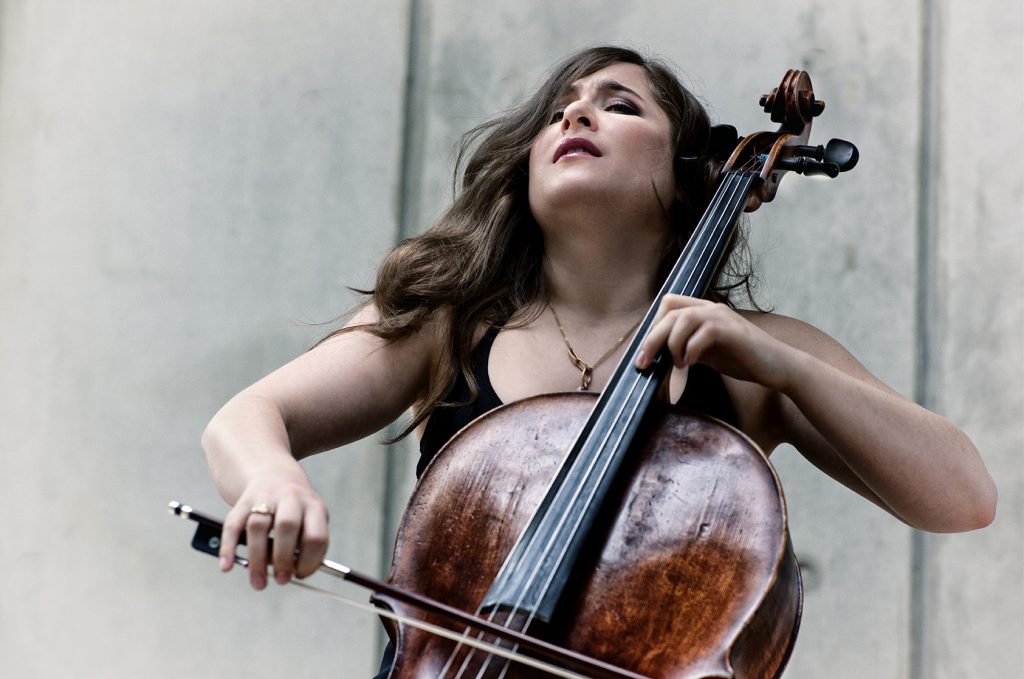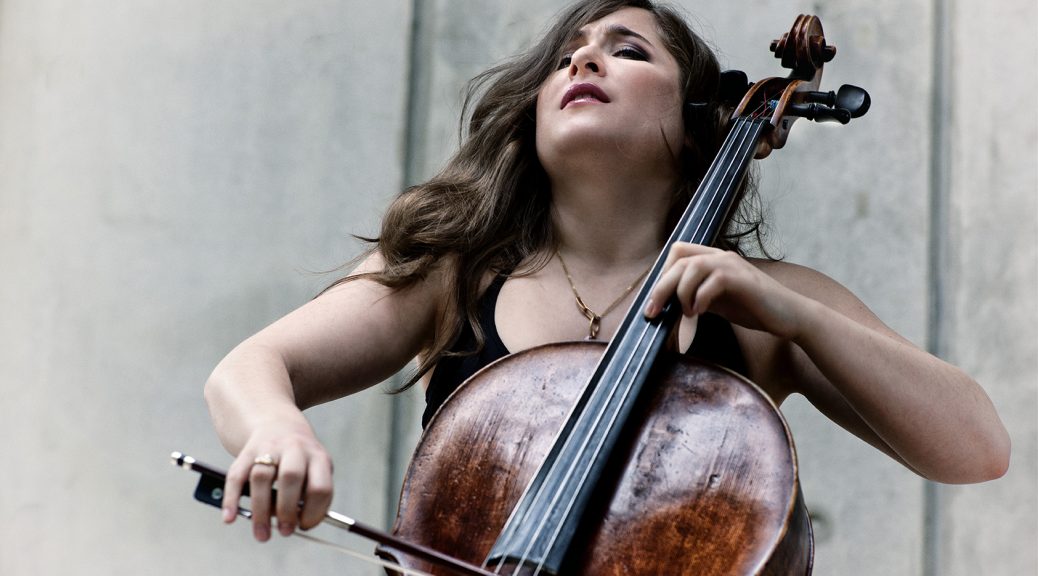
 (3 / 5)
(3 / 5)
In their official end of their season, BBC NOW would wrap things up in their trying year, with no St David’s Hall, at Hoddinott Hall. Though they usually have one last flutter in the Hoddinott before the last concert at St David’s (then off to the Proms in London), this smaller scale concerts still have a lot of punch.
A hefty Cello Concerto from Dvořák, with soloist Alisa Weilerstein was an impressive start. All the folksy, good hearted nature of the Czech composer’s homeland is here. Written both in the US (where he taught) and his home, the piece is a three-quarter hour delight. Retrospective in nature, the home sickness also messed into his past love affair with his wife’s sister, who originally never cared for Antonín. This didn’t stop him putting her favourite song in the concerto. You’ve got to really like the cello for this to truly work, though the orchestra do bring out some ringing moments. The brass felt rather loud, perhaps due to the direct acoustics of the reliable Hoddinott. It’s always looks silly for a percussionist to wait patiently and then just play one instrument…that being the triangle for this large piece. Alisa makes the solo role putty in her hand, she brought many truths and I also was taken with her passion. She didn’t shy away from broad, proud moments and subtle, tender bars were noteworthy. Not quite my favourite cello concerto, but lovely all the same.
Blue Cathedral was our post interval opener from Jennifer Higson. Inspired by imagery of a cathedral floating in the sky, this liminal space in musical form, had lots of percussion and flamboyant instrumental moments for the orchestra. Some serene, Debussy like phases flattered the audience and some little bouts of harsh dissonance cropped up as well. I found it appealing, though felt it didn’t quite find its footing in its ten odd minutes.
A real rarity followed and a problematic one at that. The joyfully energetic American conductor Ryan Bancroft has treated us to his countries great musical offerings most notably Charles Ives, with a 150th birthday celebration this year. African American composer William Dawson saw great success with his Negro Folk Symphony in the 1930s. Though he could not bottle this popularity, he revised the work after visits to West Africa in the hope to rekindle its past success. Whilst Dvořák encouraged American composers to utilise spirituals and other music from Africa, he set the gold standard for its use. There is much flair and drama in Dawson’s symphony, the mark of slavery and faith pierce through. Its quite intense and theatrical, remarkably I was still bored by it. Even the lovely use of harp and an anvil at the conclusion didn’t win me over. Its fusion worked well enough, I just don’t think it maintained the stamina for the over thirty minutes. Whilst I have my own reservations, I cannot deny the works place in history nor it’s influence under diverse composition.
Listen to this concert on 13 June 2024 on BBC Radio 3: In Concert, then available for thirty days on BBC Sounds.

